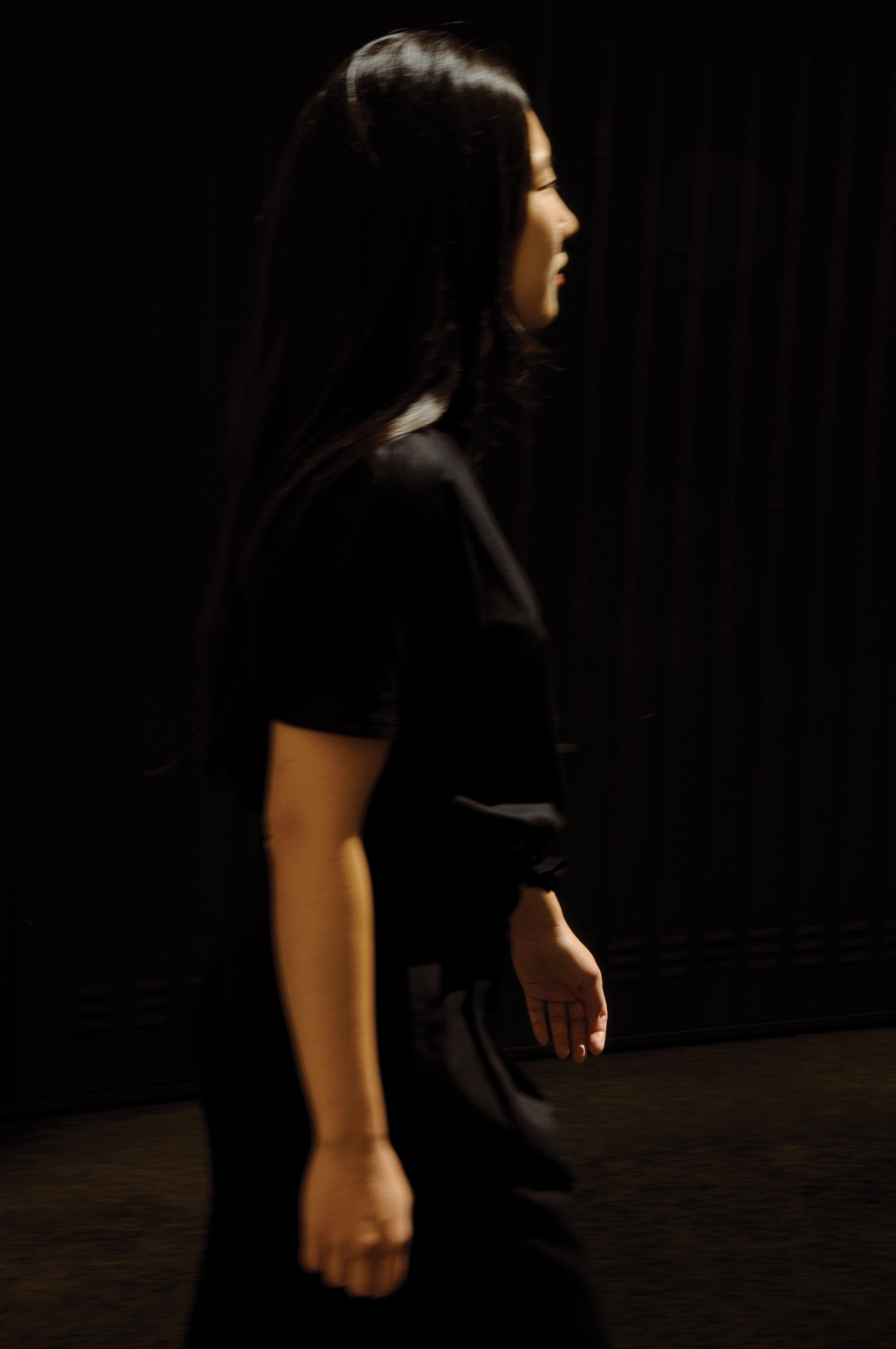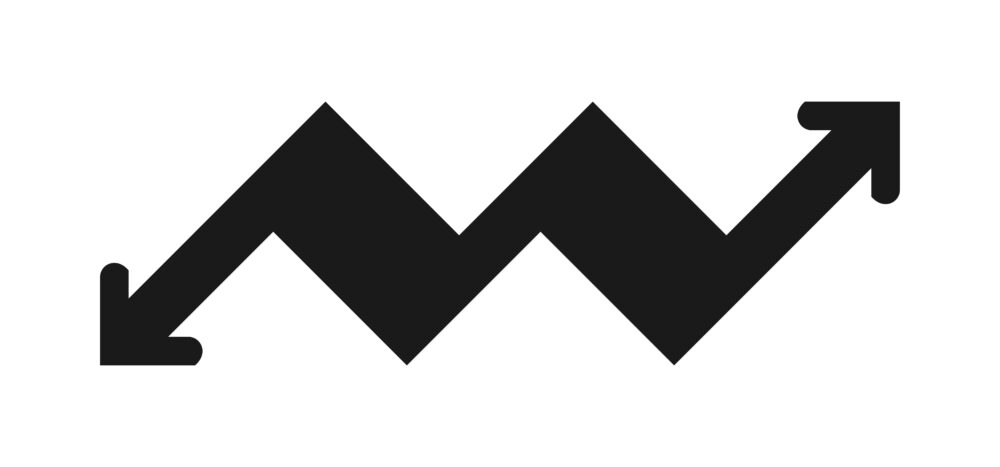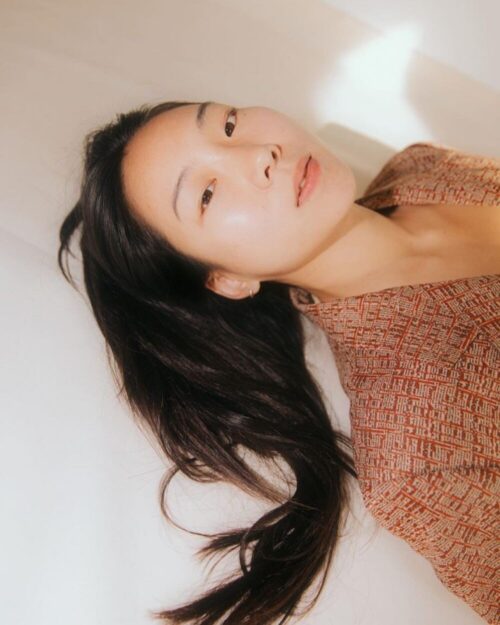„MUSIC IS MY PLAYGROUND” – AN INTERVIEW WITH HYEJI NAM

An easy question: How are you doing?
I had a talk with this Japanese firm, Neutone. They develop the AI plug-in that I use, so they were asking me how I got into music, but it’s a really boring story because it goes like: My mom was playing the piano and …
You think it’s boring?
I mean, I was born in Seoul, I grew up there. Nothing happened and then, when I was 11, my family and I went to New Zealand for a year and a half. I remember this time so well because it changed a lot for me. All of a sudden, I had a choir and an orchestra in school. Sometimes kids from other schools would come together at events and everybody was constantly expressing themselves. That was such an intense experience. Before, music was always something serious to me.
Because of your pianist mom, right?
Yeah, she was also a classic singer, so I heard a lot of serious music from a young age. Maybe that’s why I kept away from music for so long. It only opened up when I realized that I could do experimental music, but back then …
You eventually moved back to Seoul from New Zealand.
Which was a completely different culture again, especially in school. In Korea, you face so much pressure and restriction as a student. After one and a half years abroad, I couldn’t handle that. That’s when I stopped to talk.
What were your feelings back then?
I was super depressed. Nothing made any sense, especially to express myself. So I stayed quiet.
„It was nice, but after some time, I felt like I didn’t fit in.”

When did you decide to talk again?
Well, I don’t know, but I felt different when I got into high school, mainly because it was a girl’s school. Also, we had longer hours, I basically spent my life in school. Eventually, someone started a choir, which brought me back to express myself again. But only later, in university, I really got liberated because in Korea, you are allowed to do a lot more when you enter uni than before. You can drink and go out and do stuff that you want to do. That opened me up to a lot of new people in the arts field.
You went to study arts in Korea, right?
I signed up for Fine Arts, yes, a painting class. In the beginning, it was nice, but after some time, I felt like I didn’t fit in. I started to do other stuff, went to different clubs, even started to travel because I wanted to escape the routine that I felt in class. That decision even goes back to my pre-study-time.
How do you mean that?
When I was around 18, I became very sick. For a year, I barely couldn’t walk. That was a tough phase and it took me a lot of time to recover, but it also made me think: I need to do what I want. That’s probably a very cheesy thing to say, but back then, it was crucial to me.
Honestly, I can only imagine.
Yeah, a lot of my texts and also my music used to be about this phase. It is changing, though. Sometimes, it’s even strange that it’s not coming out of me anymore. I realize that I have processed it and I have to let it go. Still, this certain time opened me up to a lot of senses.

Did it also open up a new direction for you?
I sometimes wonder, but the upright answer is: I would have worked within these fields anyway. This phase of my life made me more impulsive, though. Since then, I am absolutely certain that I have to do what I do now — also, because I realized how fragile life can be. I really appreciate being healthy now.
Do you live differently because of that experience?
I am … trying. That’s why I always look up to friends who work as dancers, catching up with their routines and all. It only changed, though, when I was traveling Europe back then. My first stop was Paris, then I did the Camino de Santiago and I …
Wait, you did the entire Jakobsweg?
Yeah, I had not known that it was that famous, though. I just did it. At that time, I was working at H&M as a side job. There, I got so tired of people’s faces. A good friend of mine then came up with this idea. She knew someone who was studying to become a priest, so she heard about this route in Europe, where you go through different towns and it’s nice and all. I looked it up and simply decided to do it. I even got a certificate.
Wow.
Yeah, it’s such a beautiful memory and I met so many nice people. Also, that decision brought me to Berlin.
How did you end up in Vienna, then?
For practical reasons, to be honest. I found this class from Ashley Hans Scheirl, whom I was really a fan of. Probably that’s why I never got close with them.
„It creeped me out, I couldn’t even listen to her music anymore.”
How do you remember that class?
It changed after a year because Scheirl moved away from Vienna. But during the time, it was great. So much diversity and age groups and interests. There really was a family vibe going on, which turned our class into a playground.
You had not started to produce music back then, though?
Not yet, but Scheirl’s work felt super body-focussed and experimental, which certainly raised an interest going into that direction. I even remember a talk I had with them once. Scheirl gave me a list of books that they thought would go along with my work. I bought one, opened it and had to close it right away. It was so hardcore! There were images of body parts and a fictional story that was sexual in a super strange way.
What did you think?
I couldn’t face it, but it was nice to see that my taboo topics that I thought of at that time, were topped by something even more taboo. I still haven’t opened that book, though.

What do you consider taboo?
It’s hard to say, a lot of my work is very dream-like, it blurs. But I feel like this aspect is more prominent in my performance work … Actually, no — it informs the way I perform music now. It showed me that I don’t need to restrict myself to a fixed framework. Now, music is my playground, it’s the freest medium to me.
Do you have an explanation for that?
Maybe it’s because I am still in the beginning phase with music. I am trying things out, that makes me feel free. Also, I think of Lana Del Rey, who is a great songwriter, but also a constructed character trying to touch upon topics like nostalgia.
I think it’s cool that you mention her.
You know, back when I was working for H&M, the store would play Lana Del Rey all the time. It creeped me out, I couldn’t even listen to her music anymore. But slowly it has changed.
And you started making music yourself.
Yes, but doing this and that and this, I think I am so slow …
You mean, you think you never do enough?
Well, yeah, and also that it’s not good enough. Maybe once or twice a year I am completely satisfied with what I did, but then I focus on the parts that are not good and I forget everything else.
Would you say this is why you work with AI plug-ins – to bypass this thought?
For now, I am fond of it, whistling into the microphone and letting the AI make water sounds out of it or playing some funky piano notes and turning them into scratching throat sounds. It’s fun because it keeps me thinking of technology as magic and there is a naive, child-like thought to it. But this will change for sure, not only for me, but who knows: Maybe even the world will not be interested in it in two years anymore.

This article is brought to you as part of the EM GUIDE project – an initiative dedicated to empowering independent music magazines and strengthen the underground music scene in Europe. Read more about the project at emgui.de.
Funded by the European Union. Views and opinions expressed are, however, those of the author(s) only and do not necessarily reflect those of the European Union (EU) or the European Education and Culture Executive Agency (EACEA). Neither the EU nor EACEA can be held responsible for them.


Hyeji Nam